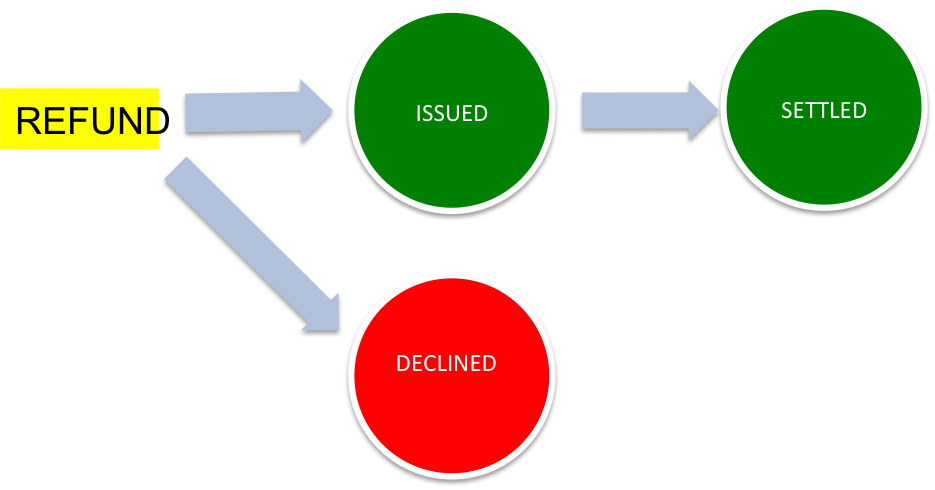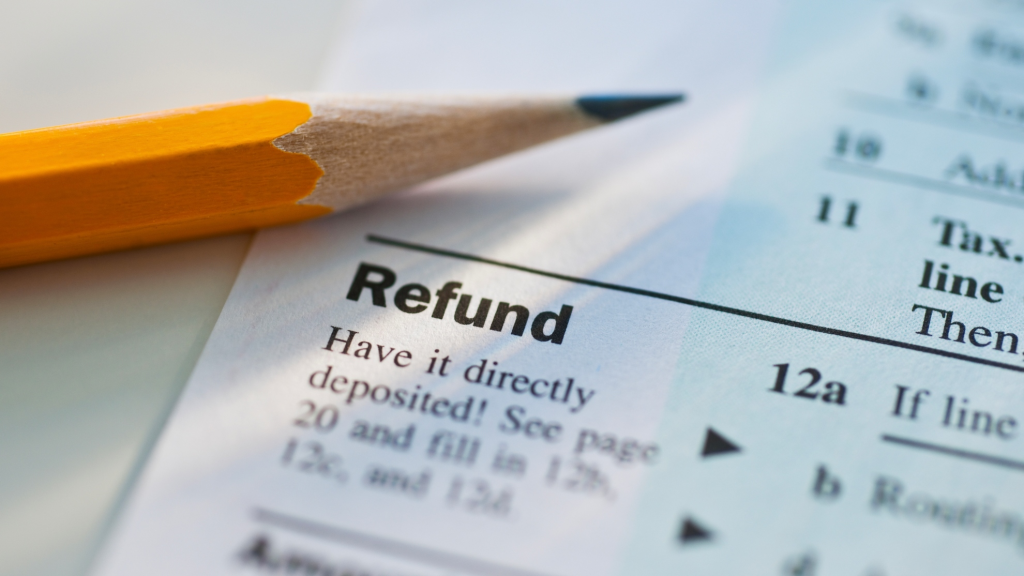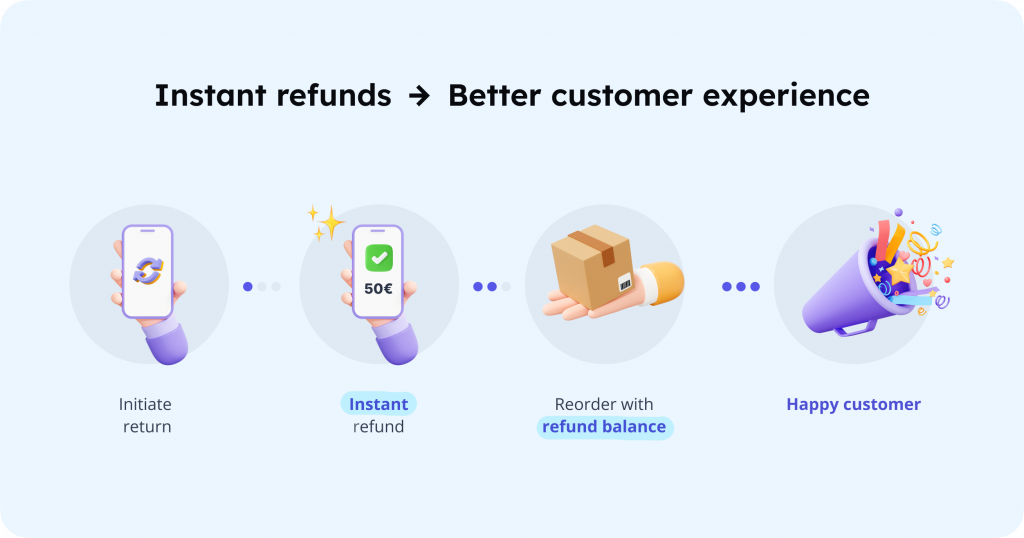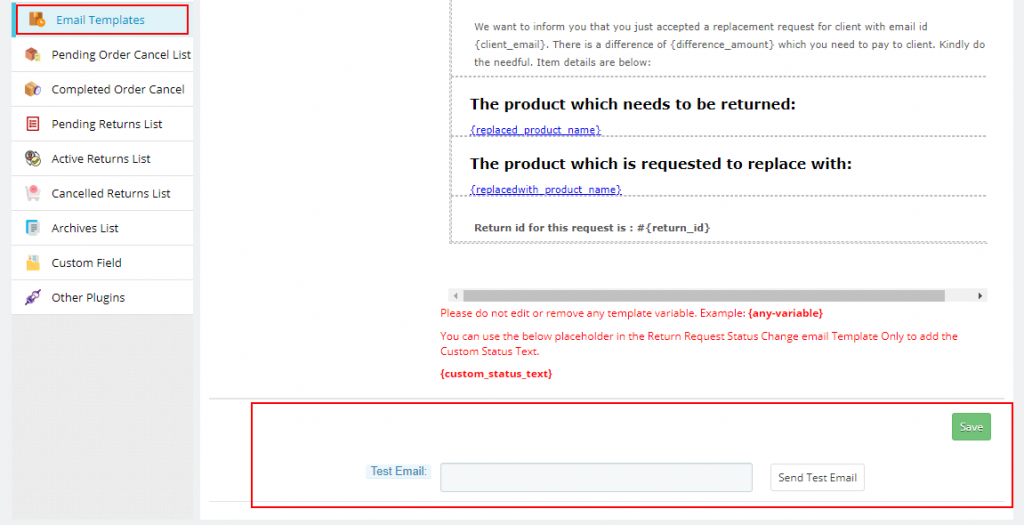Navigating the intricacies of Refund Pending in Bank Account can be a perplexing ordeal for many consumers. Whether it’s a delayed reimbursement for a canceled transaction or an unresolved dispute with a merchant, the uncertainty surrounding pending refunds can cause frustration and anxiety. Understanding the reasons behind pending refunds and knowing how to expedite the resolution process is essential for regaining control of your finances and peace of mind.
In this comprehensive guide, we’ll delve into the common causes of pending refunds in bank accounts. Explore effective strategies for resolving them, and provide actionable tips to streamline the refund process. With clear insights and practical advice, you’ll be equipped to navigate the complexities of pending refunds with confidence and efficiency.
Understanding Refund Processing:

Refunds are a standard part of the financial transaction process, but many customers are unaware of the intricacies involved. When a refund is initiated, it undergoes a series of steps, starting with the merchant’s request to the bank. The bank then verifies the transaction details, ensuring accuracy and legitimacy, before processing the refund. This verification process can take time, depending on various factors such as the bank’s processing protocols. The complexity of the transaction, and any additional security measures in place. Once verified, the refund is credited back to the customer’s account, completing the process.
However, delays can occur at any stage of the refund process, leading to frustration and uncertainty for customers. Common reasons for delays include incomplete or inaccurate transaction information. Discrepancies in account details, and technical issues with payment processing systems. Additionally, some merchants may have specific policies or procedures in place for handling refunds, which can further prolong the process. Despite these challenges, understanding how refund processing works can help customers navigate delays more effectively and advocate for their rights.
Common Reasons for Refund Delays:

Refund delays can stem from various factors, ranging from technical glitches to procedural complexities. One common reason for delays is discrepancies in transaction information, such as mismatched account details or incomplete payment records. These discrepancies often require manual intervention by bank staff to resolve, adding time to the refund process.
Additionally, delays can occur if the bank’s processing systems are overloaded or experiencing technical issues, leading to slower transaction processing times. Moreover, some merchants may have stringent refund policies or verification procedures in place. Which can further prolong the process. Despite these challenges, proactive communication with both the bank and the merchant can help expedite the refund process and resolve delays more effectively.
Steps to Resolve Pending Refunds:

Resolving pending refunds requires proactive communication and follow-up with both the merchant and the bank. The first step is to contact the merchant directly to inquire about the status of the refund and confirm that it has been initiated. Provide the merchant with any necessary transaction details and documentation to facilitate the process.
If the merchant confirms that the refund has been processed on their end but has not yet been received in your bank account, the next step is to contact your bank. Provide your bank with the transaction details provided by the merchant and request assistance in tracing the refund. Banks typically have dedicated customer service channels or dispute resolution procedures to handle such inquiries and can provide updates on the status of the refund.
Additional Considerations for Refund Pending in Bank Account:

In some cases, pending refunds may be the result of more complex issues that require further investigation and resolution. For example, if the refund is for a disputed transaction or involves a third-party payment processor, additional steps may be necessary to resolve the issue. In such cases, it may be helpful to escalate the matter to higher levels of authority within both the merchant’s organization and the bank.
Additionally, if the refund delay is causing financial hardship or significant inconvenience. You may consider seeking assistance from consumer protection agencies or filing a formal complaint with relevant regulatory bodies. While resolving pending refunds can be frustrating and time-consuming, persistence and advocacy can help ensure a favorable outcome.
Steps to Resolve Refund Pending in Bank Account
Resolving a pending refund requires proactive communication and collaboration between the consumer. The merchant, and the bank. Here are some steps you can take to expedite the resolution process and ensure a satisfactory outcome:
- Gather relevant information: Start by gathering all relevant documentation related to the transaction. Which includes receipts, order confirmations, and communication with the merchant. Having this information on hand will facilitate the resolution process and provide evidence to support your refund request.
- Communicate with the merchant and bank: Reach out to both the merchant and your bank to inquire about the status of the refund and express your concerns. Provide them with any additional information or documentation they may require to process the refund promptly.
- Report fraudulent activity: If you suspect that the pending refund is the result of fraudulent activity, such as unauthorized charges or identity theft, report it to your bank immediately. They can investigate the issue and take appropriate action to safeguard your account and recover any lost funds.
Common Scenarios
Pending refunds can occur in various scenarios, each requiring a different approach to resolution. Here are some common scenarios where pending refunds may arise and how to address them:
- Refunds for canceled transactions: If you’ve canceled a transaction but haven’t received a refund, reach out to the merchant to inquire about the status of the refund. Provide them with any relevant information or documentation to expedite the process.
- Disputes with merchants: If you’re involved in a dispute with a merchant regarding a refund. Escalate the issue to your bank or credit card company for assistance. They can intervene on your behalf and help resolve the dispute promptly.
- Fraudulent transactions: If you suspect that a pending refund is the result of fraudulent activity, notify your bank immediately and request a refund reversal. They can investigate the transaction and take appropriate action to protect your account and recover any lost funds.
Tips for Avoid Refund Pending in Bank Account
While pending refunds can be frustrating, there are steps you can take to minimize the likelihood of encountering them in the future. Here are some tips for avoiding pending refunds:
- Verify transactions before finalizing: Before completing a transaction, double-check the details to ensure accuracy and completeness. Confirm the amount, merchant information, and transaction details to avoid discrepancies that could lead to pending refunds.
- Keep records of all transactions: Maintain detailed records of all your financial transactions. Which includes receipts, order confirmations, and communication with merchants. Having this information on hand will make it easier to resolve any issues that may arise, including pending refunds.
Conclusion
If your Refund Pending in Bank Account. It can be a source of frustration and inconvenience for consumers, but they are a common occurrence in the world of financial transactions. By understanding the underlying causes of pending refunds and taking proactive steps to resolve them. You can minimize the impact on your financial well being and ensure a satisfactory outcome. Remember to communicate openly and transparently with merchants and banks, and don’t hesitate to escalate the issue if necessary. With patience and persistence, you can navigate the resolution process successfully and reclaim your funds.
FAQs
- How long does a refund take to process?
Refunds can vary in processing time, depending on the merchant and the bank involved. In general, refunds can take anywhere from a few days to several weeks to process and reflect in your account. - What should I do if a pending refund is taking too long to process?
If a pending refund is taking longer than expected, reach out to the merchant and your bank for assistance. Provide them with any relevant information or documentation to expedite the process and ensure a timely resolution. - Can I dispute a pending refund with my bank?
Yes, if you believe that a pending refund is unjustified or incorrect. You can dispute it with your bank or credit card company. They can investigate the issue and take appropriate action to resolve the dispute in your favor. - Will I receive a notification once the refund is processed?
Yes, you should receive a notification from the merchant or your bank once the refund is processed and credited back to your account. Be sure to monitor your email or account statements regularly for updates on the status of the refund. - Are there any fees associated with processing a refund?
In most cases, there are no fees associated with processing a refund. However, some merchants may charge a restocking fee or processing fee for returns and refunds. So be sure to review their policies carefully before requesting a refund.















